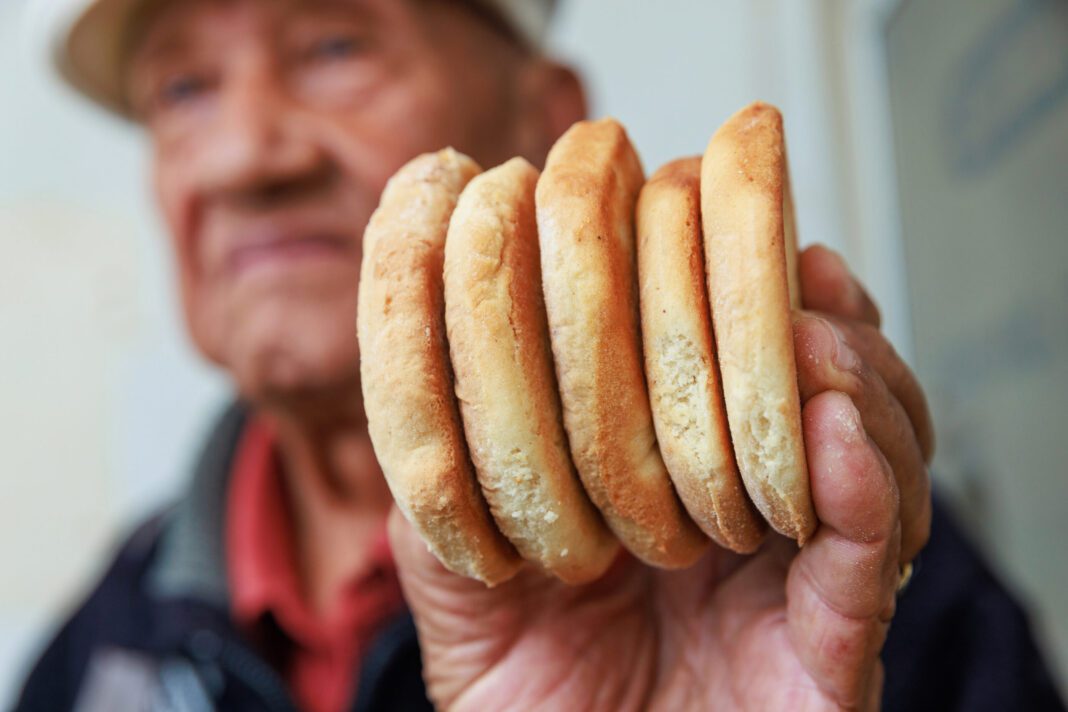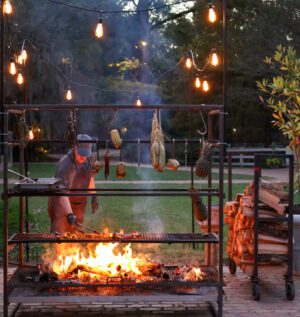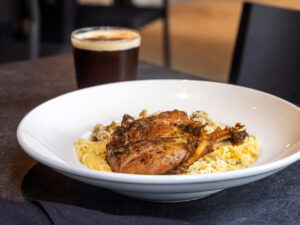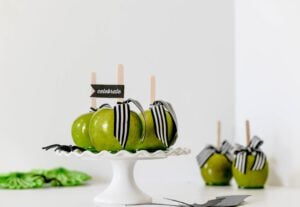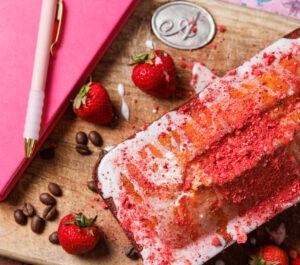Biting into the long and storied history of tea cakes, a Southern soul food staple
Jade Gautreau had never heard of tea cakes before she started shopping at the Red Stick Farmers Market in downtown Baton Rouge a few years ago. Now, she’s a fan.
“We buy them every week,” says Gautreau, an orthopedic trauma physician assistant and married mother of five. “They’re like these fluffy cookies. They’re great for dipping in coffee. Sometimes, we put honey butter on them.”
The Ascension Parish native says she began shopping at the Saturday farmers market because she wanted her family to eat more local produce. Stumbling upon the Dillard’s Old Fashioned Tea Cakes booth was an added bonus. Now, she has to hide the bag of tea cakes—or her kids will eat them all at once.
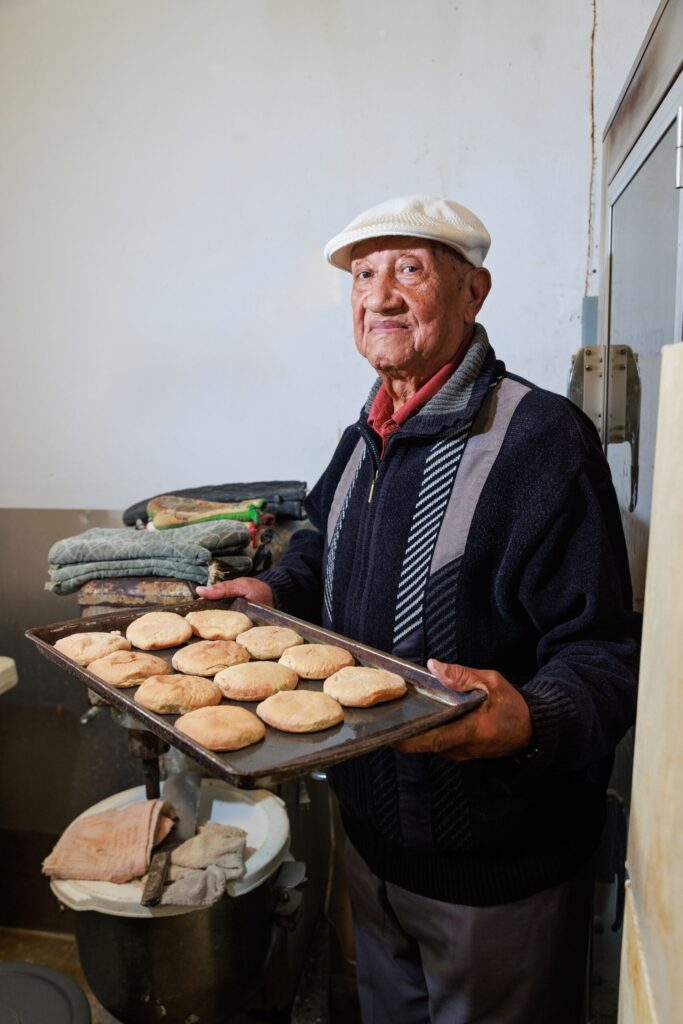
Gautreau might be a new convert, but tea cakes have a long and storied history. They’ve been a soul food staple in pockets of the South for hundreds of years. Dillard’s tea cakes are made by hand in Baton Rouge by retired minister Junius Dillard and his granddaughter, Adrian Dillard, using a mid-19th century recipe from the family of Dillard’s late wife, Gloriastine.
Typical of traditional Southern tea cakes, the Dillard family’s version is a semisweet, tender cake-cookie hybrid. Junius, 86, brings 40 dozen tea cakes and 60 foil-wrapped sweet potato hand pies to each Saturday and Thursday market, and also sells them at Southern University home games. Tea cake devotees around the country frequently call him for orders.
“I sent about 50 dozen to a guy in Chicago earlier this year,” he says.
Junius says his late wife’s grandmother, who lived in rural Terrebonne Parish, first gave him the recipe as a way to help raise money for his ministry work. He and his wife moved to Baton Rouge from Houma in 1976 to grow the Church of God on Ozark Street. Armed with the tea cake recipe, he routinely sold the baked goods for church fundraisers.
When the Red Stick Farmers Market launched in 1996, Junius saw the new venture as a good fit for his wares. It’s rare if he doesn’t sell out well before the market closes.
Part of the soul food culinary tableau, tea cakes likely derive from the English tradition of consuming a biscuit or cookie with tea. Carried to the New World by European settlers, the tradition spread among enslaved people, who used small amounts of cast-off ingredients to create humble versions of the original, says Liz Williams, founder and president of the Southern Food and Beverage Museum in New Orleans.
“You didn’t need a special pan or special ingredients to make them,” Williams says. “They could have been made with lard, cane syrup or sorghum, depending on where you were in the South.”
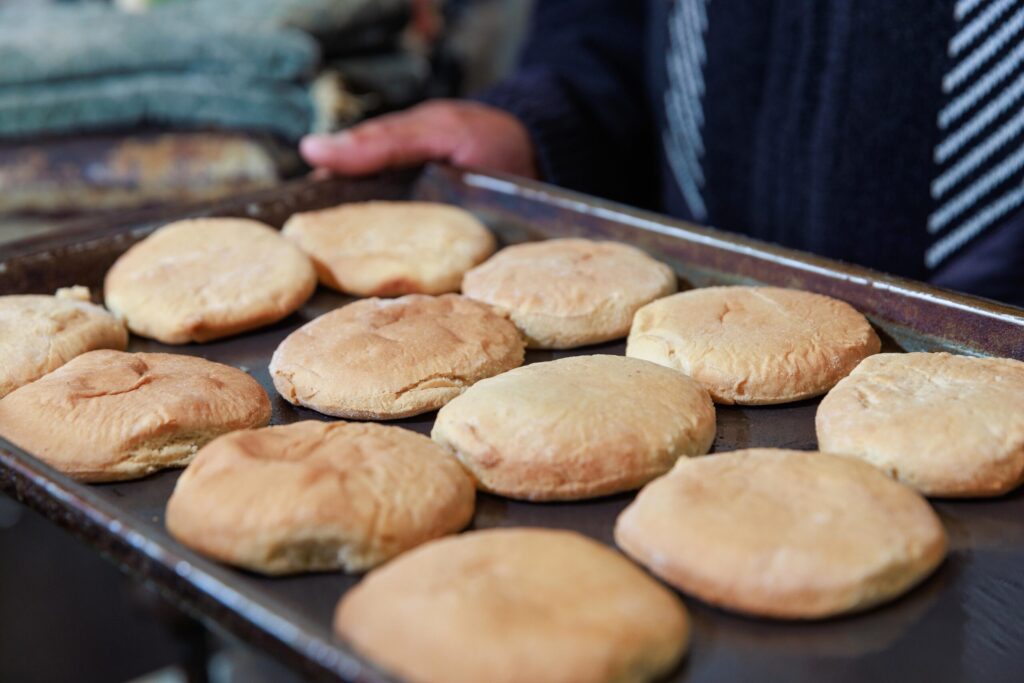
Williams says such ingredients caused the cakes to spread on the pan during baking, creating the oversized shape that has become part of the tea cake’s identity. And while not as widespread as other vestiges of soul food cooking like fried chicken or collard greens, tea cakes remain a niche tradition with diverse interpretations.
Adrian Dillard, 40, is in line to take over the family business. She says there’s variation even in the recipes of her extended family. Her maternal great-grandmother made tea cakes that were thin and crispy, she says, compared to her grandfather’s airier take.
Baton Rouge Soul Food Fest founder and recording artist Henry Turner says his mother’s tea cakes were like the Dillards’.
“As far back as I can remember, tea cakes were part of the culture,” says Turner, a Baton Rouge native. “It was probably the first cookie I knew. I used to watch my mother bake them, and I’d be salivating the whole time.”
Turner says tea cakes were always in his family’s cookie jar, and that his mother baked large batches before hurricanes. Cheap to produce and requiring no refrigeration, the pastries were convenient snacks during weather events.
The Dillards bake tea cakes twice a week in a small cinder block building attached to Junius’ Glen Oaks Drive house. The made-from-scratch baked goods are never more than one day old when taken to the market.
With quick, deft movements, Adrian rolls out a 4-by-3-foot sheet of dough with a rolling pin then cuts out the discs of dough using a specially fabricated 2-inch round cookie cutter. To her left is a stack of around 20 alternating cookie sheets, each holding a dozen uncooked tea cakes.
Later, the trays will go into a secondhand Subway sandwich shop oven squeezed into a corner of the tiny room. Once baked and cooled, they’ll be loaded into plastic bags holding a dozen tea cakes each.
Their customers report different tea cake uses, from simple snacking to pairing with whipped cream and fresh strawberries for an easy shortcake. The Dillards say they follow a recent family tradition of covering a tea cake with a slice of American cheese and popping it into the microwave.
The secret to making their tea cakes’ flavor and texture distinct is a smidge of nutmeg and baking powder as the main leavener, the pair admits.
But beyond that, they’re not talking. You’ll have to taste for yourself.
For more information, visit breada.org, or reach Dillard’s Old Fashioned Tea Cakes at 225-235-3554.
This article was originally published in the December 2023 issue of 225 magazine.




